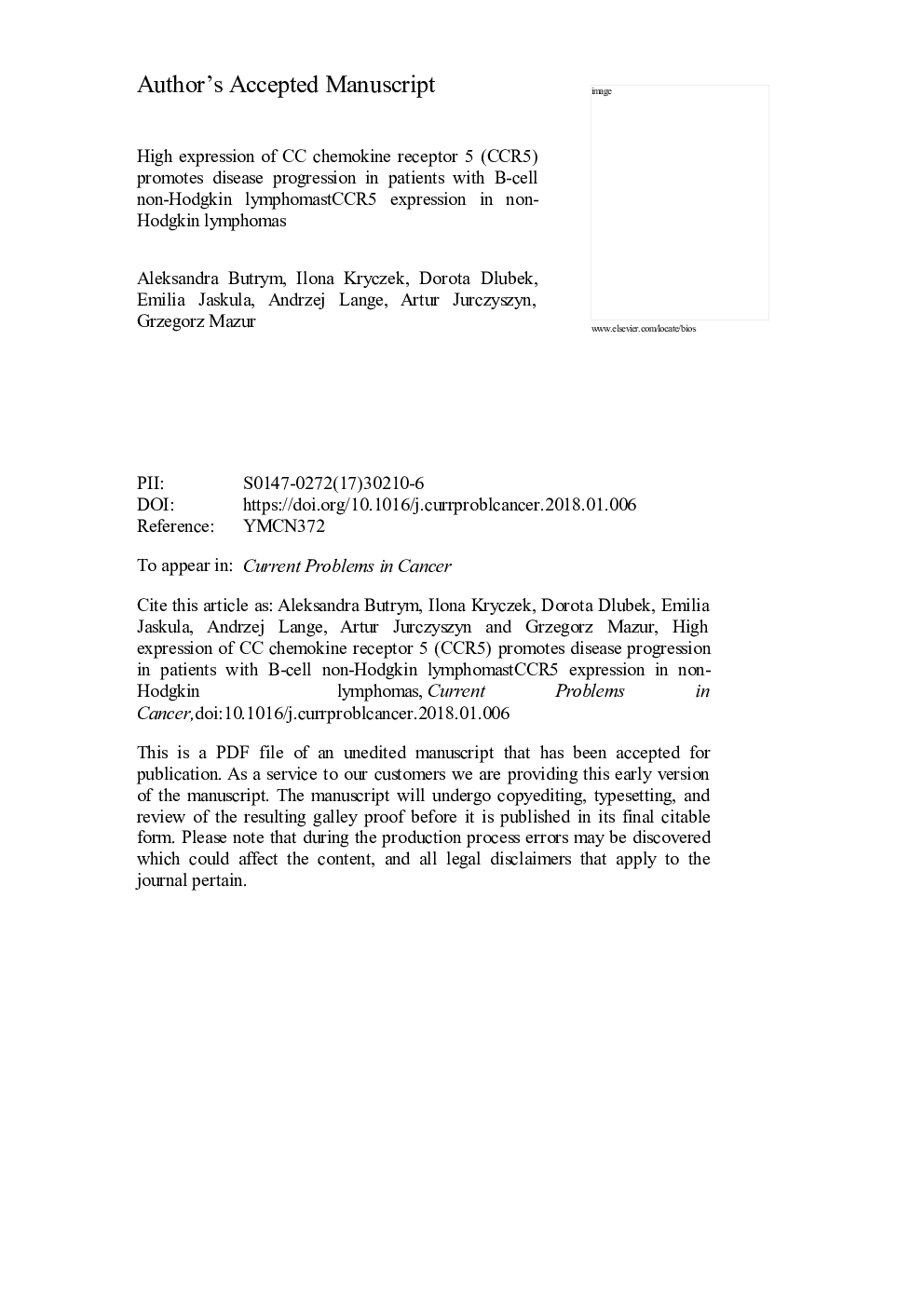| Article ID | Journal | Published Year | Pages | File Type |
|---|---|---|---|---|
| 8733832 | Current Problems in Cancer | 2018 | 17 Pages |
Abstract
Chemokines are small proteins, that regulate cell migration in many physiological and pathologic processes in human body. They are also responsible for cancer progression. CC chemokine receptor 5 (CCR5) is responsible for cell recruitment in inflammation and may be involved in antitumor immune response controlling. Aberrant CCR5 can be found in different kind of cancers, not only hematological, but also solid tumors. Non-Hodgkin lymphomas consist of many lymphoma subtypes. They predominantly derive from B cells and can have very heterogenous clinical course. That is why new prognostic factors are still needed to predict and select high-risk patients. We evaluated CCR5 expression in lymph nodes derived from B-cell lymphomas in comparison to reactive lymphatic tissue (reactive lymph nodes): samples of lymphoma lymph nodes, peripheral blood, and bone marrow aspirates of patients with B-cell non-Hodgkin lymphoma were taken at diagnosis and after completed chemotherapy. Gene expression was determined by the reverse transcription-polymerase chain reaction method. Expression was estimated from 0Â AU (no amplificate signal) to 3Â AU (maximal amplificate signal). We found low CCR5 expression in lymphomas and reactive lymph nodes. Higher CCR5 gene expression in lymphoma patients was correlated with advanced stage of the disease, high proliferation index (Ki-67), and international prognostic index. Patients with higher CCR5 expression had shorter survival. CCR5 high expression may have a role in non-Hodgkin's lymphomas progression and can influence patients' survival. CCR5 also can become an immunotherapeutic target for novel treatment options in the future as well as new prognostic factor.
Related Topics
Health Sciences
Medicine and Dentistry
Hematology
Authors
Aleksandra MD, PhD, Ilona PhD, Dorota PhD, Emilia PhD, Andrzej Prof., Artur MD, PhD, Grzegorz Prof.,
